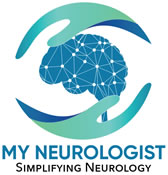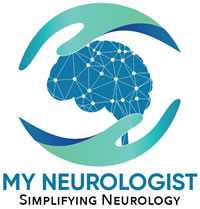This is a term used for damage to optic nerves from a metabolic or toxic reason. In comparison, optic neuritis is a term for inflammation of the optic nerve. It is not a precise term and is bit confusing, as the optic nerve injury from a stroke may also be called optic neuropathy. To differentiate, if it is caused by a stroke, it is called ischemic optic neuropathy. In this section, optic neuropathy from metabolic or toxic reasons is discussed.
What exactly happens in optic neuropathy?
As stated above, optic nerve can be injured due to many reasons. In a case with stroke, the problem is in the blood vessels, and the nerve gets affected due to lack of blood supply. In cases with inflammation, the main issue is an inflammatory process, which destroys the nerve. In optic neuropathy discussed in this section, the nerve is affected due to a chemical processes, which directly damages the nerve cells. This type of damage involves one particular part of the cells, called mitochondria.
Every cell of our body has tiny structures called mitochondria. They are unique for two reasons: a. They have their own genetic material (it is like they are independent organisms), and b. One only gets them from the mother side; father or the sperm does not have any contribution in this. Mitochondria are the energy generation centers in the cells. The cell works if they work, and dies if they do not. Anything that damages mitochondria may result in cell death. Many chemical and toxins damage optic nerves due to their destructive effect on the mitochondria.
What chemicals can affect optic nerves?
- Ethambutol (Myambutol): A drug to treat tuberculosis.
- Linezolid (Zyvox): An antibiotic used to treat drug resistance bacteria.
- Chloremphenicol: An old antibiotic.
- Fluoroquinolones (like Ciprofloxacin): Antibiotics.
- Aminoglycosides (like Tobramycine, Gentamicin, neomycin): Antibiotics.
- Amiodarone: For cardiac arrhythmias.
- Anti-tumor necrosis factor-alpha agents (like Remicade, Humira, or Enbrel): Anti-inflammatory agents.
- Tacrolimus (Prograf): An immune suppressant.
- Vigabatrin (Sabril): An antiepileptic.
- Methanol: Toxic alcohol.
Optic neuritis can also be caused by deficiency of certain vitamins or minerals, such as vitamin B12, Folate, and copper. It is also understood that some people have genetic predisposition, weakened mitochondrial system, to have this complication from exposure to different chemicals.
Hereditary Optic Neuropathies
Leber Hereditary Optic Neuropathy: Usually presents in 2nd to 3rd decade of life, mostly before 50, as painless unilateral visual loss, with involvement of the other eye in weeks to months later. Visual loss worsens in days to weeks, and is mostly central. Some patients also have cardiac arrhythmias, peripheral neuropathy, dystonia, and ataxia. This condition is only inherited from mother to children, and multiple responsible genes have been discovered. There is no specific treatment, but a drug called Idebenone may be helpful. There is hope that gene therapy may help change the course of this disease.
Autosomal Dominant Optic Atrophy
Presentation is similar to Leber, but its transmission is autosomal dominant.
Where can I get more information about optic neuropathy?
American Ophthalmology Association


Leave a Reply
Your email is safe with us.
You must be logged in to post a comment.